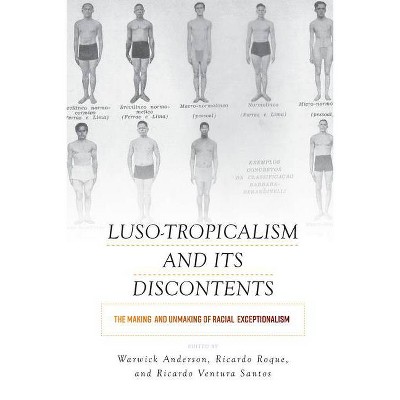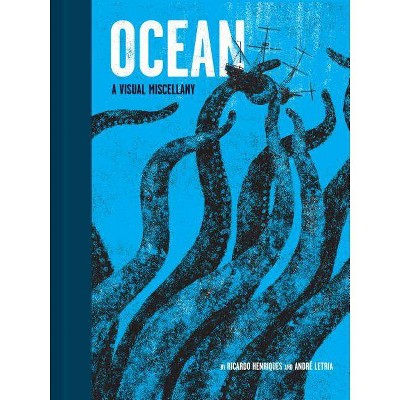Luso-Tropicalism and Its Discontents - by Warwick Anderson & Ricardo Roque & Ricardo Ventura Santos (Hardcover)

Similar Products
Products of same category from the store
AllProduct info
<p/><br></br><p><b> About the Book </b></p></br></br>"Modern perceptions of race across much of the Global South are indebted to the Brazilian social scientist Gilberto Freyre, who in works such as The Masters and the Slaves claimed that Portuguese colonialism produced exceptionally benign and tolerant race relations. This volume radically reinterprets Freyre's Luso-tropicalist arguments and critically engages with the historical complexity of racial concepts and practices in the Portuguese-speaking world. Encompassing Brazil as well as Portuguese-speaking societies in Africa, Asia, and even Portugal itself, it places an interdisciplinary group of scholars in conversation to challenge the conventional understanding of twentieth-century racialization, proffering new insights into such controversial topics as human plasticity, racial amalgamation, and the tropes and proxies of whiteness"--<p/><br></br><p><b> Book Synopsis </b></p></br></br><p> Modern perceptions of race across much of the Global South are indebted to the Brazilian social scientist Gilberto Freyre, who in works such as <em>The Masters and the Slaves</em> claimed that Portuguese colonialism produced exceptionally benign and tolerant race relations. This volume radically reinterprets Freyre's Luso-tropicalist arguments and critically engages with the historical complexity of racial concepts and practices in the Portuguese-speaking world. Encompassing Brazil as well as Portuguese-speaking societies in Africa, Asia, and even Portugal itself, it places an interdisciplinary group of scholars in conversation to challenge the conventional understanding of twentieth-century racialization, proffering new insights into such controversial topics as human plasticity, racial amalgamation, and the tropes and proxies of whiteness.</p><p/><br></br><p><b> Review Quotes </b></p></br></br><br><p> <em>"This well-edited, highly stimulating book provides a 'view from the edge' that will be of great interest not only to Luso-Brazilianists and historians of Portuguese colonialism, but also to scholars concerned with racial theories, eugenics, biopolitics, and (post-)colonial studies."</em> <strong>- Centaurus</strong></p> <p> <em>"Despite scholarly consensus regarding the fallacy of lusotropicalism, the idea continues to circulate in both classic and neological forms. This volume makes a valiant attempt to reroute the conversation."</em> <strong>- Hispanic American Historical Review</strong></p> <p> <em>"A valuable and wide-ranging addition to the literature on Luso-tropicalism, this book will appeal to a variety of readers and make a considerable impact on the field."</em> <strong>- Maria Lúcia G. Pallares-Burke</strong>, Emmanuel College</p> <p> <em>"The breadth of analysis in</em> Luso-tropicalism and Its Discontents <em>is extraordinary, and the diverse range of contributors here is second to none. The collective and individual aspects of the work contribute in new ways to the discussion on race relations and global history."</em> <strong>- Richard Cleminson</strong>, University of Leeds</p><br><p/><br></br><p><b> About the Author </b></p></br></br><p> <strong>Ricardo Roque</strong> is a Research Fellow at the Institute of Social Sciences of the University of Lisbon and currently an Honorary Associate in the Department of History of the University of Sydney. He is the author of <em>Headhunting and Colonialism</em> (2010) and the co-editor of <em>Engaging Colonial Knowledge</em> (2012).</p>
Price History
Price Archive shows prices from various stores, lets you see history and find the cheapest. There is no actual sale on the website. For all support, inquiry and suggestion messages communication@pricearchive.us




















